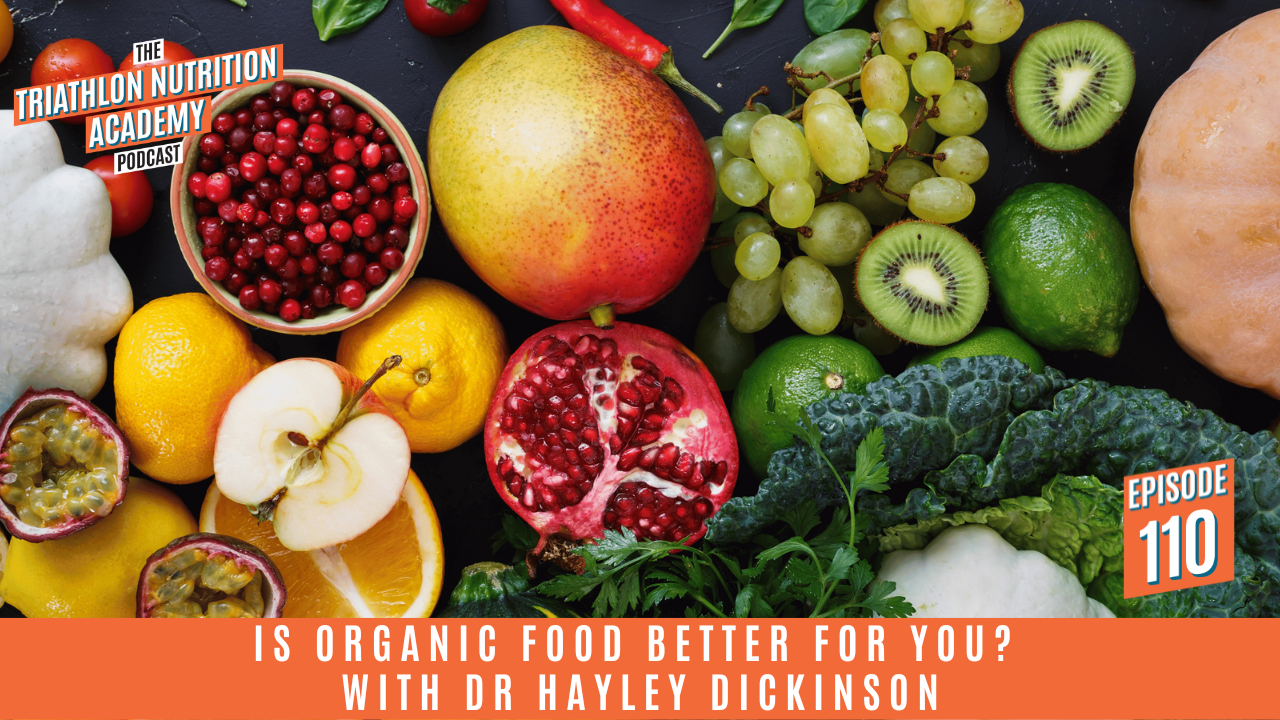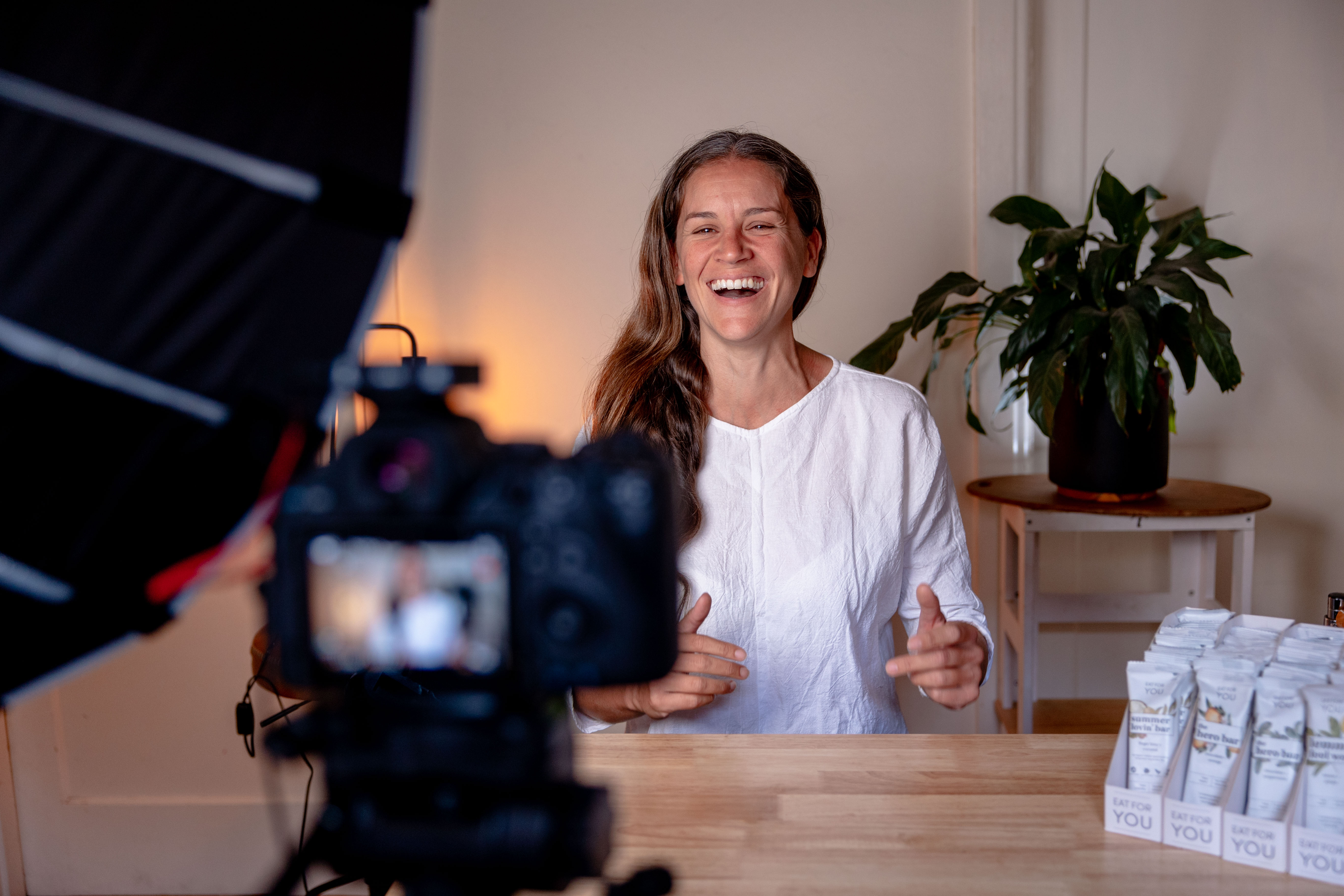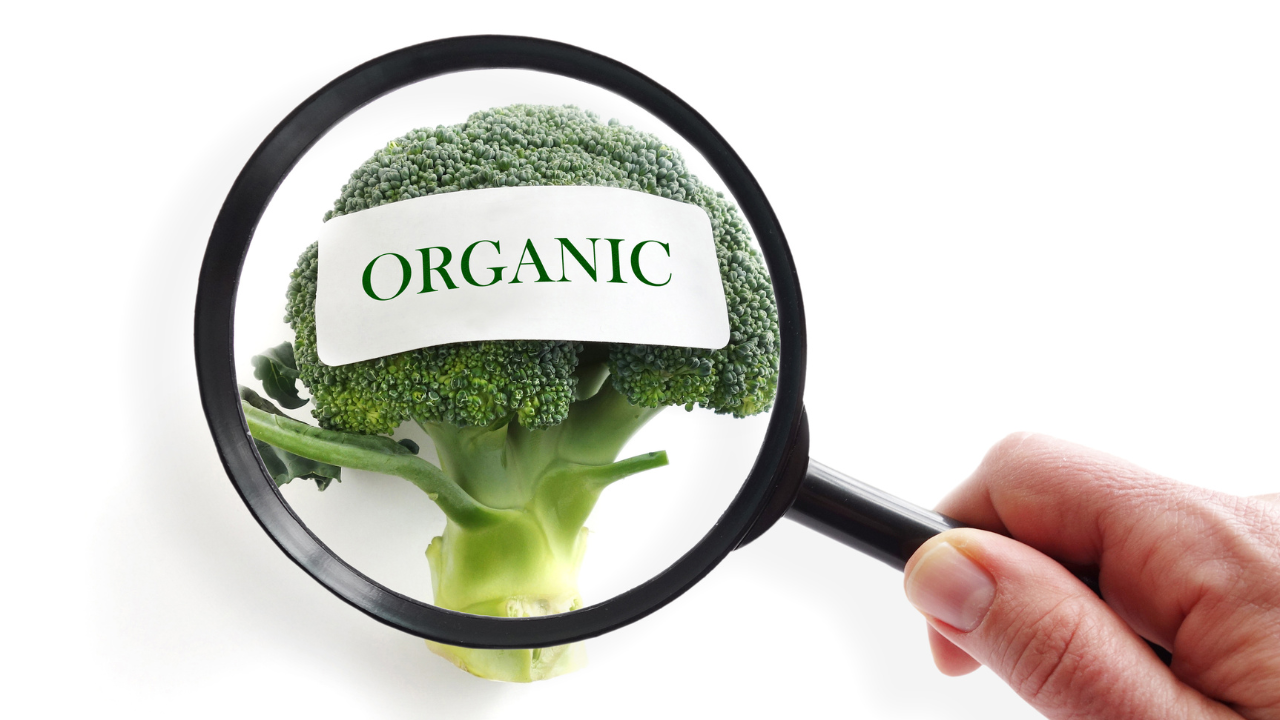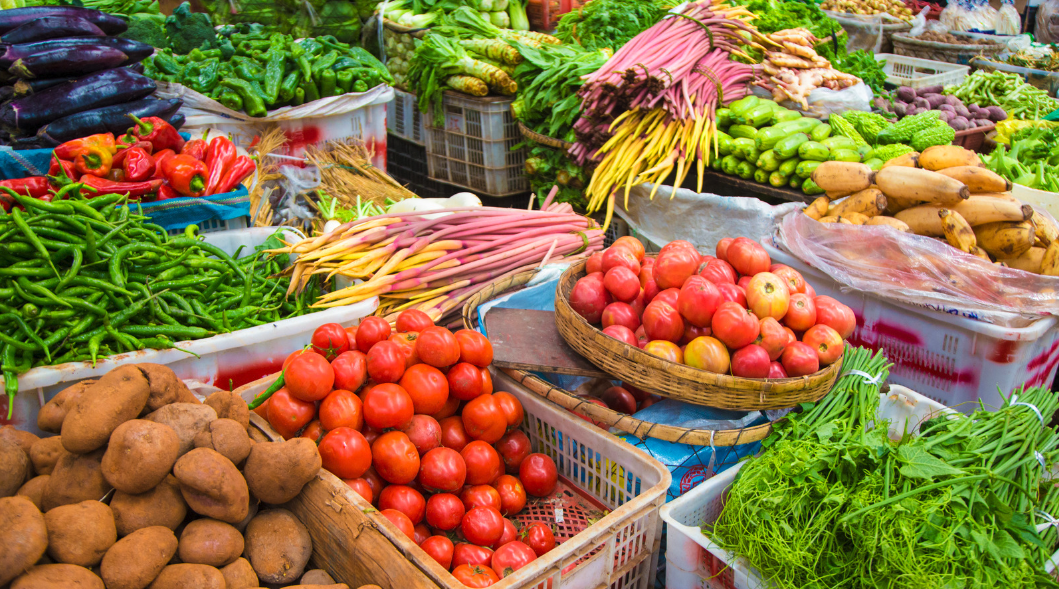Is Organic Food Better For You? With Dr Hayley Dickinson

Let’s dive into organic food! Is it better for you?

Founder of Eat For You here in Australia, Dr Hayley Dickinson is the expert on all things organic food. (Learn more about Dr Dickinson by listening to her previous episode: Unravelling the Truth About Food Labels and The Nutrient Quality of Our Food with Dr Hayley Dickinson.)
Defining organic food
- Organic doesn't have a universal definition.
- In Australia, organic principles include high nutritional value, enhancing farming ecosystems, soil fertility, renewable resources, pollution avoidance, and environmental protection.
- Producers must adhere to these principles and get certified.
- The Australian Government has a detailed National Standard for Organic and Biodynamic Produce.
- This document outlines allowed inputs, land management, and certification requirements.
A costly transition
- Transitioning to organic farming is expensive and time-consuming.
- Farmers may experience yield drops during the conversion period.
- Brave farmers make the transition, but it's a tough decision.
Certification complexity
- Organic food certification isn't just for farms; manufacturers and brands must also be certified.
- Certification costs money at every stage of the process.
- Dr. Hayley questions the necessity of certification, as it drives up consumer costs.

The unregulated "organic" label
- The term "organic" isn't regulated, allowing companies to use it freely.
- Look for certified organic logos like Australian Certified Organic (ACO) for assurance.
Nutritional benefits of organic
- Research on the nutritional superiority of organic food is limited.
- A 2018 study found slightly more trace minerals in organic veggies but not enough to significantly impact daily nutrition.
- Dr. Hayley emphasises the importance of what you're not getting—pesticides and herbicides.
- Berries, especially strawberries, often contain pesticide residues.
- Dr. Hayley suggests washing berries thoroughly.
- She warns against relying solely on organic as a solution.

Choosing organic responsibly
- If you can afford it, choose organic to support its growth.
- Growing your own or sourcing from local farmers' markets is a great alternative.
- Refer to lists like the "Dirty Dozen" for guidance on which produce to prioritise.
- Seasonal produce is fresher and more nutritious. Automated fruit and vegetable boxes or shopping at farmers’ markets are a great start.
- Dr. Hayley emphasises the importance of aligning with nature's rhythms.
- Glyphosate, an herbicide, is commonly used as a desiccant in wheat production.
- Dr. Hayley advises choosing organic or non-GMO cereals to minimise glyphosate exposure.
- Organic produce often comes wrapped in plastic, which contradicts sustainability efforts so consider packaging when choosing organic.
The decision to choose organic food depends on your budget, values, and environmental concerns.
While organic farming aligns with valuable principles, its cost can be prohibitive.
Alternatives include washing produce, shopping locally, and considering sustainability factors like packaging.
Ultimately, the choice to go organic is a personal one, but it's essential to make informed decisions.
To dive deeper, listen to the Triathlon Nutrition Academy Podcast, EP 110 - Is Organic Food Better For You? With Dr Hayley Dickinson
If you are interested in learning more about the Triathlon Nutrition Academy Program and what it can do for you, head HERE to learn more.




